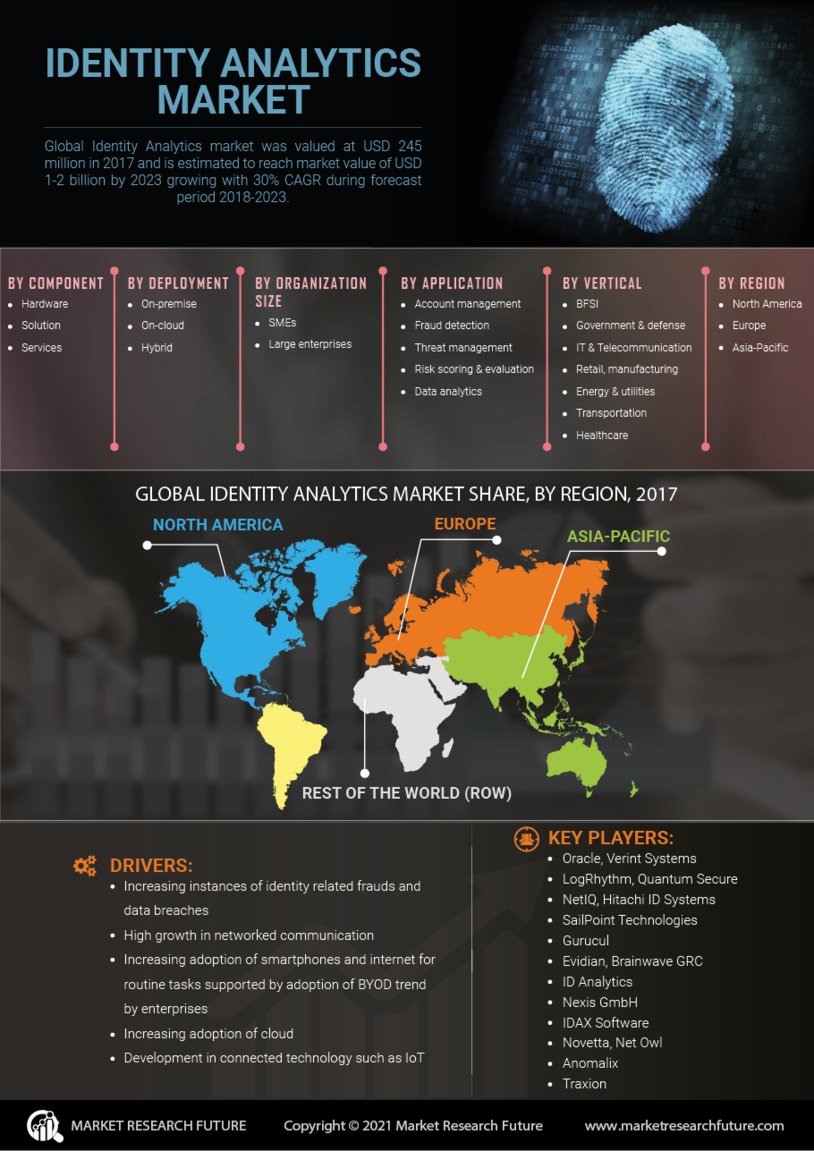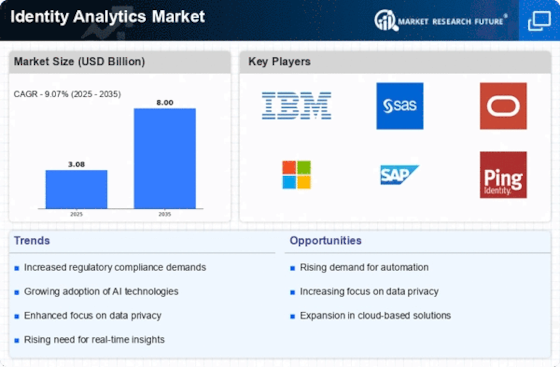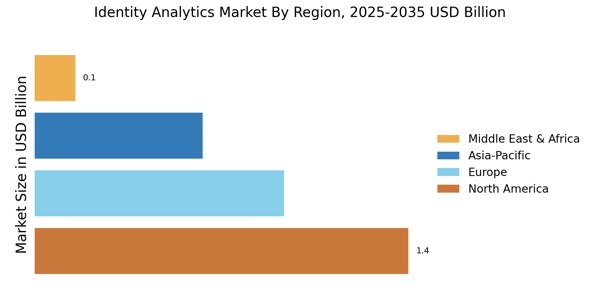Rising Cybersecurity Threats
The increasing frequency and sophistication of cyberattacks has propelled the demand for robust identity analytics solutions. Organizations are recognizing that traditional security measures are insufficient in combating these threats. In 2025, the identity analytics market is projected to grow significantly as businesses seek to enhance their security posture. The need for real-time monitoring and analysis of user behavior is paramount, as it allows for the early detection of anomalies that may indicate a breach. This trend is likely to drive investments in identity analytics technologies, as companies aim to safeguard sensitive data and maintain customer trust.
Emergence of Advanced Technologies
The advent of advanced technologies such as artificial intelligence and machine learning is reshaping the identity analytics market. These technologies enable organizations to analyze vast amounts of data more efficiently, leading to improved identity verification and fraud detection capabilities. In 2025, the market is projected to grow as businesses adopt these technologies to enhance their identity analytics solutions. The integration of AI and machine learning can provide organizations with predictive insights, allowing them to proactively address potential security threats. This technological evolution is likely to drive further investment in identity analytics, as firms seek to stay ahead in an increasingly complex threat landscape.
Regulatory Compliance Requirements
The landscape of regulatory compliance is evolving, with stricter data protection laws being enacted across various jurisdictions. Organizations are compelled to adopt identity analytics solutions to ensure compliance with regulations such as GDPR and CCPA. The identity analytics market is experiencing growth as companies invest in tools that facilitate the monitoring and reporting of user access and data usage. In 2025, the market is expected to expand as businesses prioritize compliance to avoid hefty fines and reputational damage. This regulatory pressure is likely to drive innovation in identity analytics, as firms seek to implement solutions that not only meet compliance standards but also enhance overall security.
Increased Adoption of Cloud Services
The shift towards cloud computing has transformed the way organizations manage their identity and access management processes. As more businesses migrate to cloud-based solutions, the identity analytics market is witnessing a surge in demand for tools that can effectively monitor and analyze user identities across multiple platforms. In 2025, the market is anticipated to grow as organizations seek to leverage identity analytics to gain insights into user behavior and access patterns in cloud environments. This trend indicates a need for integrated solutions that can provide comprehensive visibility and control over identities, thereby enhancing security and compliance.
Growing Importance of Customer Experience
Organizations are increasingly recognizing the role of identity analytics in enhancing customer experience. By leveraging data analytics, businesses can gain insights into customer behavior and preferences, allowing for personalized interactions. The identity analytics market is likely to benefit from this trend as companies invest in solutions that enable them to understand and anticipate customer needs. In 2025, the market is expected to expand as organizations seek to create seamless and secure customer journeys. This focus on customer experience may drive the development of innovative identity analytics tools that facilitate better engagement and satisfaction.


















